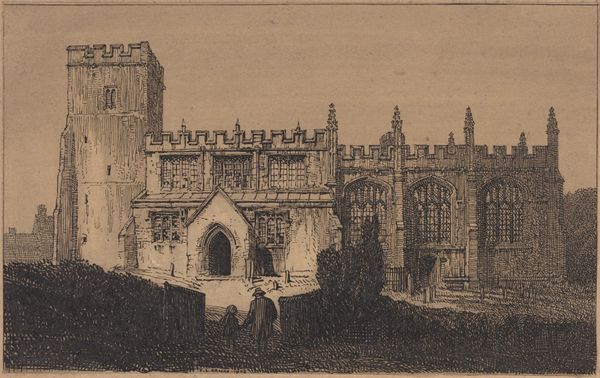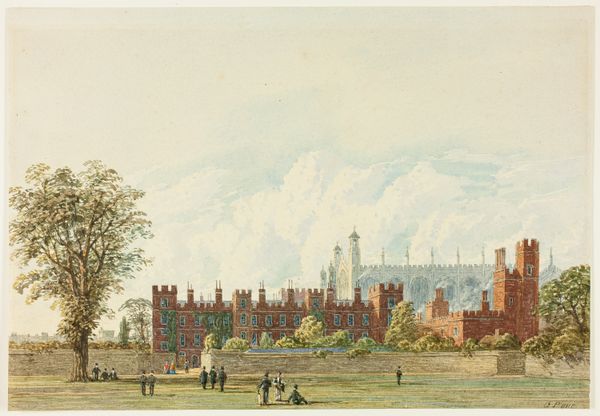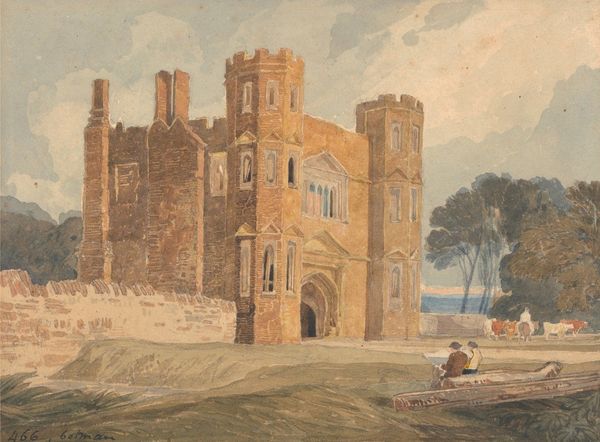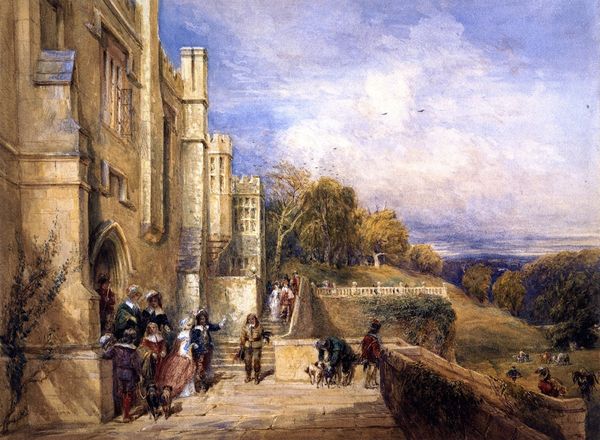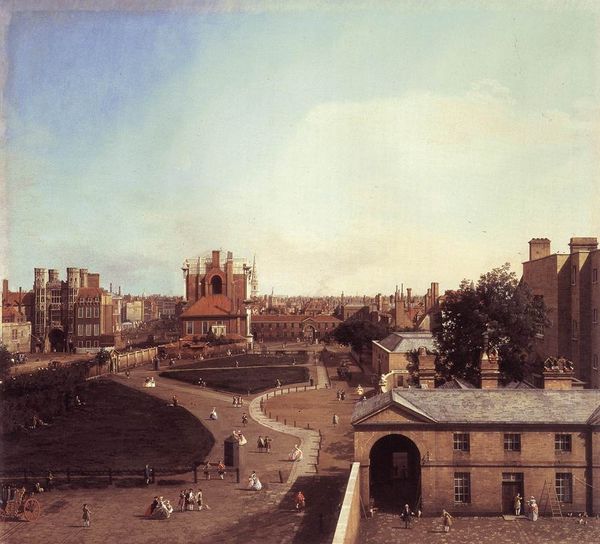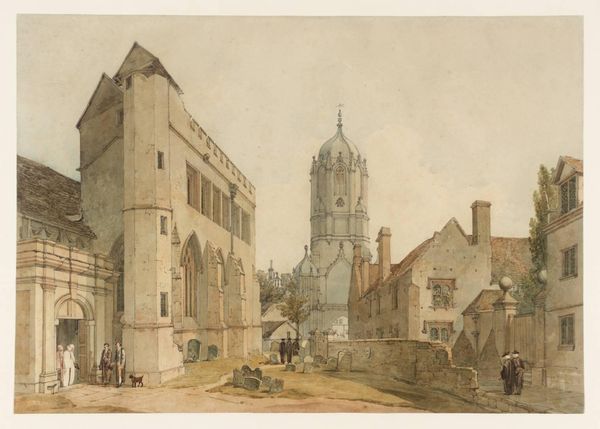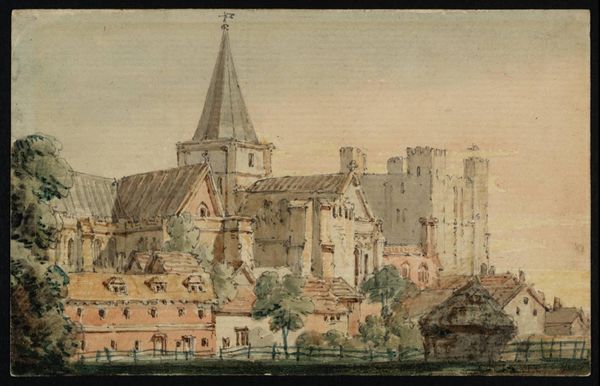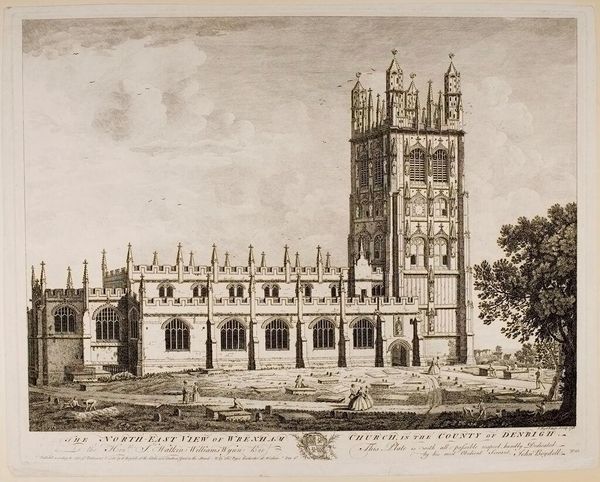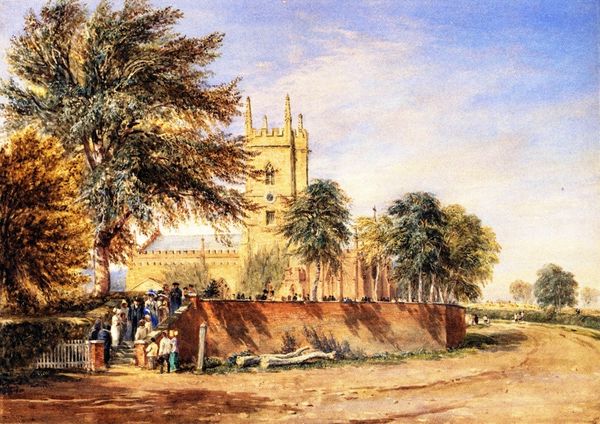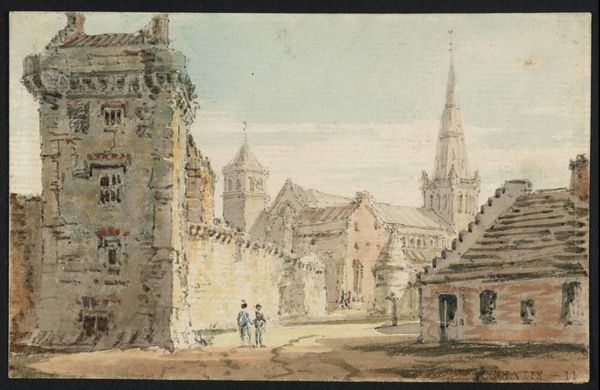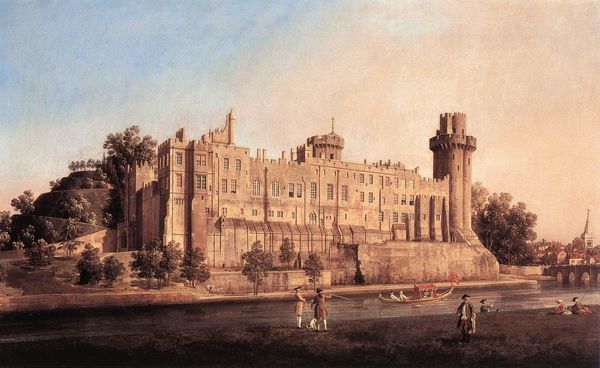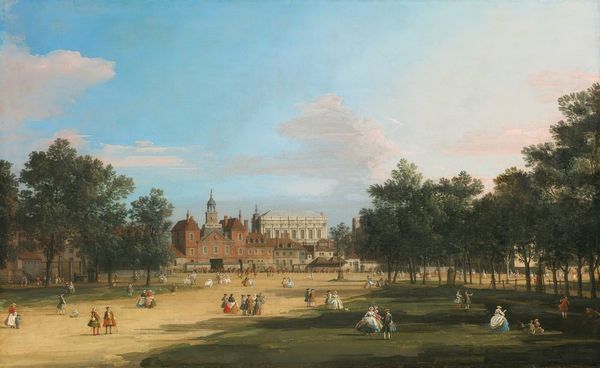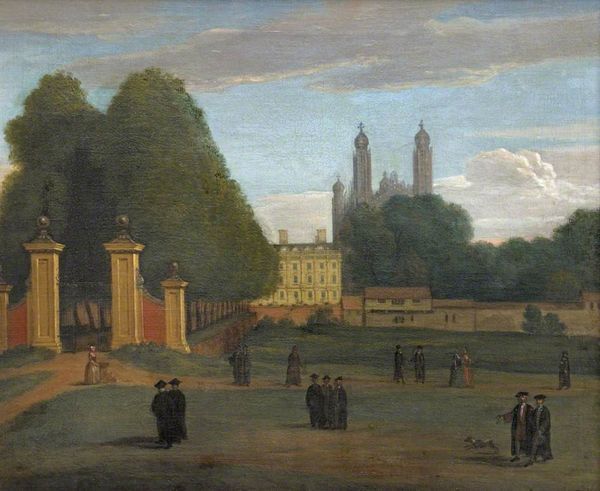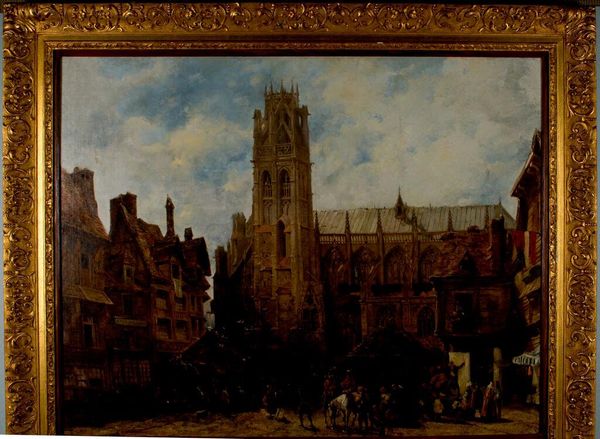
painting, oil-paint
#
baroque
#
painting
#
oil-paint
#
landscape
#
oil painting
#
classicism
#
15_18th-century
#
genre-painting
#
history-painting
#
realism
Dimensions: 190.5 x 91.4 cm
Copyright: Public domain
Curator: Here we have Thomas Gainsborough's "St. Mary's Church Hadleigh," painted around 1750. It's an oil on canvas. The piece currently resides in a private collection, offering a rare glimpse into Gainsborough’s early landscape work. Editor: My immediate impression is one of understated solemnity. The sky is turbulent, brooding almost, which really sets a dramatic mood against the solid architecture of the church. It's somber but grand. Curator: It’s fascinating to see how Gainsborough presents the church not just as a building, but as an emblem of stability amidst social changes in 18th-century England. These structures provided a consistent and important role for community life. The architecture represents faith and permanence, values which become crucial during times of upheaval and uncertainty. Editor: Yes, the composition definitely lends itself to that interpretation. The towering church steeple, asserting dominance, speaks volumes. However, look closer, and you'll also see details that perhaps suggest something of human impact or even vulnerability: small figures near the graveyard and buildings in decay to the far right that serve as quiet symbols. The classical elements that we might look for are not as clearly articulated, or perhaps muted in this instance? Curator: Precisely. Notice also how Gainsborough balances the formal architecture with the dynamism of the landscape. I read the artist's work as symbolic tension that mirrors shifting social structures and the growth of secularism—forces constantly shaping communal life and beliefs in his day. He represents something solid but yielding, and those clouds might also reflect the ephemeral nature of life set against institutional, perhaps oppressive religion. Editor: This adds another dimension. Seeing it within this social framework opens the door to ask questions about Gainsborough's patrons and public too; this work makes me ponder whether or how artistic commissions themselves participated within such cultural conversations or tensions. What role did wealth play in portraying institutions like St. Mary's? Curator: Well, the question of patronage certainly offers further context—particularly who commissioned this kind of vista at a pivotal moment for landscape art! Editor: Indeed. So much more than simply bricks and mortar here, it seems. Curator: Definitely—a powerful study of a building representing something much greater at a fascinating period of change.
Comments
No comments
Be the first to comment and join the conversation on the ultimate creative platform.
